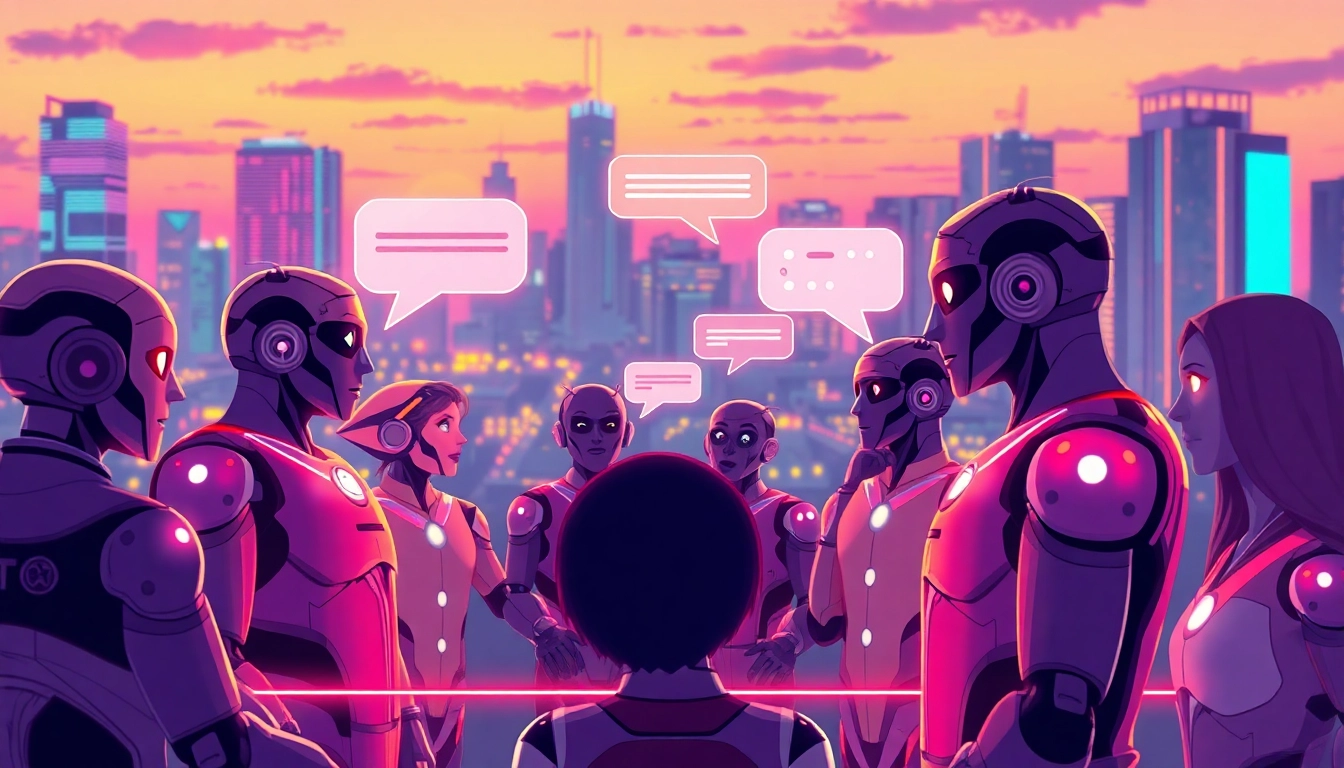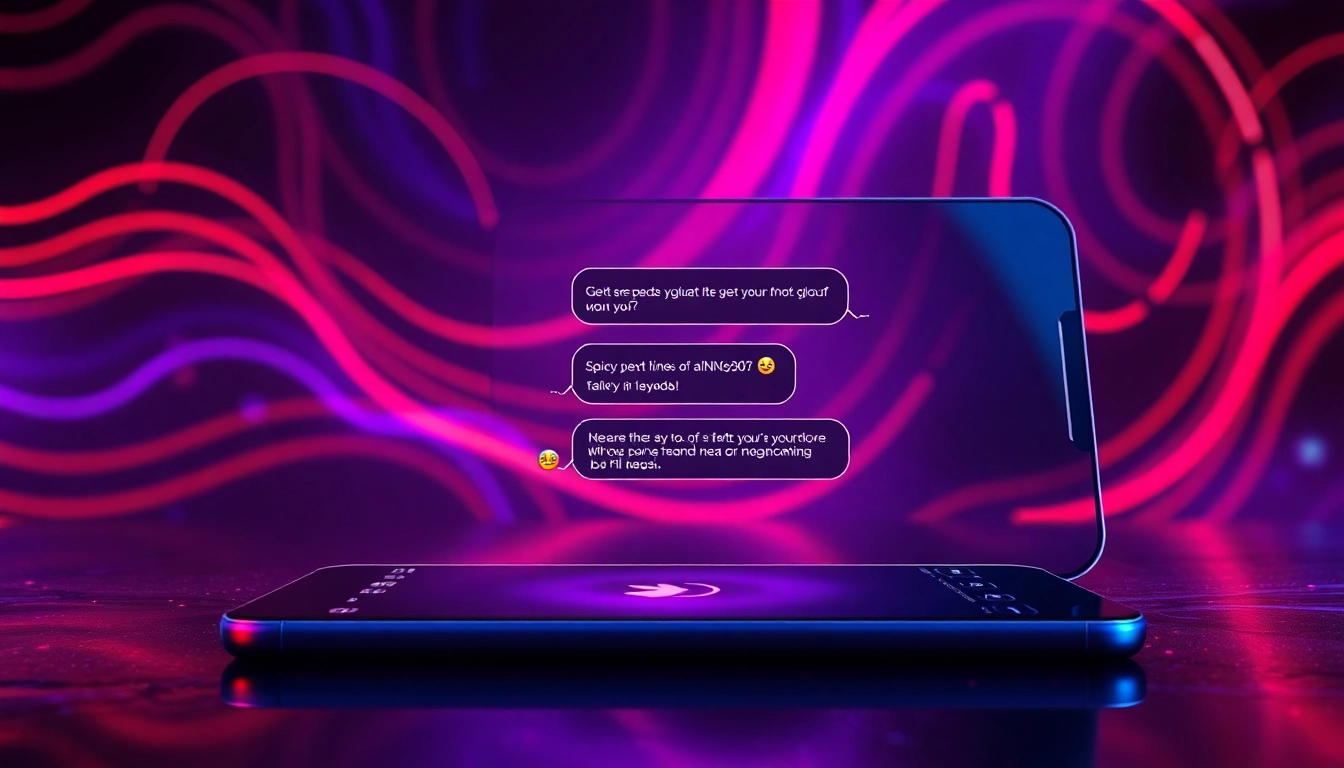Understanding the DILF Phenomenon: From Cultural Origins to AI Interactions
The term dilf meaning has gained significant traction in modern vernacular, especially within online communities and pop culture. Originally rooted in slang, the acronym DILF stands for “Dad I’d Like to F*,” a provocative phrase that combines humor, sexuality, and social commentary. Its emergence reflects shifting perceptions of masculinity, attractiveness, and the evolving landscape of internet language. Today, DILF is not merely a fleeting meme but a cultural touchstone that influences various domains, including entertainment, social media, and increasingly, artificial intelligence interactions. As AI platforms like CrushOn AI integrate human-like conversational agents, the concept of DILF takes on new dimensions—transforming from a slang term into a thematic element in digital roleplay and personality creation.
The Cultural Rise and Significance of DILF
Origins and Cultural Context
The term DILF first appeared in online forums and social media platforms during the early 2010s. It evolved from the broader lexicon of slang used in LGBTQ+ communities and mainstream pop culture to describe an attractive, fatherly figure. Unlike traditional notions of masculinity, the DILF archetype embodies a blend of mature confidence, approachability, and physical appeal. Its usage often carries a tongue-in-cheek tone, reflecting modern society’s playful and nuanced views on sexuality.
Popularity in Modern Media
Over the years, DILF has become a staple in memes, television shows, and celebrity culture. It gained popularity through viral TikTok videos, Twitter memes, and celebrity references, often used to describe attractive fathers or paternal figures with a charismatic presence. Its widespread adoption signifies a shift towards more relaxed attitudes about sexuality and attractiveness, emphasizing personality and charisma alongside physical appearance.
Impact on Online Communities
Within online communities, especially those centered around LGBTQ+ interests or adult content, DILF functions as both a descriptor and a playful identifier. It fosters a sense of camaraderie and shared humor, allowing users to express admiration or attraction in a lighthearted manner. The term’s versatility has led to its integration into digital conversations, roleplaying, and even AI character development, where it can serve as a thematic trait for virtual personas.
From Slang to AI: The Convergence of DILF and Technology
Introducing CrushOn AI and Its Capabilities
CrushOn AI is a cutting-edge chatbot platform designed to facilitate dynamic and engaging text-based conversations with customizable AI characters. By leveraging advanced language models such as GPT-4o mini and Claude 3.5 Sonnet, CrushOn AI creates natural, contextually aware interactions that mirror human dialogue. This platform caters to users seeking creative roleplay, storytelling, or casual chats, offering a flexible environment where personalities can be tailored to individual preferences.
Enabling DILF-Themed Interactions
One of the platform’s notable features is its ability to incorporate specific themes or archetypes into AI characters. For enthusiasts interested in exploring the DILF concept, CrushOn AI allows users to craft characters that embody traits associated with the archetype—such as maturity, confidence, charm, and attractiveness. These characters can be designed with detailed backstories and personalities, enabling immersive roleplay scenarios that resonate with the cultural connotations of the term.
Character Customization and Personality Traits
CrushOn AI’s character creation tools are highly versatile. Users can select from a library of pre-made characters or create entirely new ones by specifying traits like age, occupation, personality quirks, and backstory. For DILF-themed characters, traits might include being nurturing yet confident, humorous, charismatic, and emotionally intelligent. The platform’s personality customization ensures that each AI character can embody the desired archetype, making interactions more authentic and engaging.
Creating and Personalizing DILF Characters on CrushOn AI
Step-by-Step Character Creation
To design a DILF-inspired AI character, users typically follow a structured process:
- Select a base template: Choose from existing archetypes or start from scratch.
- Define core traits: Specify attributes such as maturity level, humor style, confidence, and personality quirks.
- Add backstory: Craft a compelling history that explains the character’s background, occupation, and lifestyle.
- Adjust dialogue style: Fine-tune how the character communicates—formal, flirtatious, humorous, etc.
- Set contextual memory: Enable the character to remember past conversations, creating continuity and deeper interactions.
Balancing Creativity with Ethical Considerations
While designing DILF characters can be a fun and creative process, users should remain mindful of ethical boundaries. It’s essential to avoid creating characters that promote harmful stereotypes or disrespectful portrayals. CrushOn AI encourages responsible use by providing guidelines and moderation tools to ensure interactions remain respectful and appropriate. This balance allows users to explore themes like attraction and personality without crossing into offensive territory.
The Importance of Context and Personality in AI Conversations
Maintaining Conversation Continuity
One of CrushOn AI’s strengths is its contextual memory system, which enables AI characters to recall previous interactions. This feature is particularly valuable when engaging with DILF-themed characters, as it allows for more natural and meaningful exchanges. For example, a user can discuss shared interests, personal stories, or flirtatious banter, with the AI maintaining awareness of past conversations to enhance realism and engagement.
Enhancing User Experience Through Personalization
Personalization is key to successful AI interactions. By customizing a character’s traits and backstory, users can create a persona that aligns with their preferences. This tailored approach ensures that conversations feel authentic, whether the user seeks playful flirtation, deep storytelling, or casual chat. The ability to switch between characters or engage in group chats further enriches the experience, allowing for complex roleplay scenarios involving multiple personalities.
Ethical Considerations and Responsible Use of DILF Content
Respectful Engagement and Content Moderation
As with all AI-driven platforms, responsible use is paramount. CrushOn AI emphasizes respectful interactions, discouraging the creation or dissemination of offensive content. Moderation tools and community guidelines help maintain a safe environment where users can explore themes like attraction or personality traits without crossing ethical boundaries.
Addressing Potential Risks and Misuse
While the platform offers exciting possibilities for roleplay and storytelling, there are potential risks associated with creating AI characters that embody certain stereotypes or provocative themes. Users should be aware of these risks and approach customization with sensitivity. Developers and platform moderators continuously work to prevent misuse and ensure that AI interactions promote positive and respectful experiences.
The Future of DILF in AI Character Development
Emerging Trends and Innovations
The integration of archetypes like DILF into AI characters is just the beginning. Future developments may include more sophisticated personality modeling, emotional intelligence, and adaptive responses that reflect nuanced human behavior. Advances in machine learning will enable AI characters to evolve over time, offering increasingly immersive and personalized experiences.
Expanding Creative Possibilities
As AI technology continues to mature, the scope for creative expression broadens. Users might develop entire storylines, complex relationships, or roleplay scenarios centered around DILF characters. Virtual environments could incorporate visual elements, voice interactions, and augmented reality to deepen immersion, transforming AI companions into virtually lifelike entities.
Conclusion: Navigating Identity and Expression in AI Spaces
The emergence of dilf ai and related concepts signifies a new frontier in how we explore identity, attraction, and personality through technology. Platforms like CrushOn AI empower users to create and interact with characters that embody specific archetypes, facilitating creative storytelling, roleplay, and social connection. As society continues to evolve in its understanding of masculinity, sexuality, and personal expression, AI will undoubtedly play a pivotal role in shaping these conversations. Responsible development and use of such technologies will ensure that this space remains safe, respectful, and enriching for all participants.

